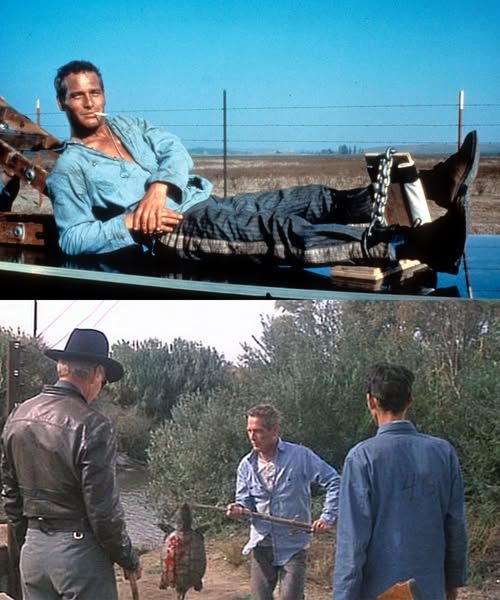Cool Hand Luke (1967) is a powerful prison drama that explores rebellion, individuality, and the human spirit in the face of oppressive authority. Directed by Stuart Rosenberg and starring Paul Newman in one of his most iconic roles, the film has become a classic of American cinema.
The story follows Lucas “Luke” Jackson, a decorated war veteran who is arrested for a petty crime—cutting the heads off parking meters while drunk—and sentenced to a Southern chain gang prison. From the moment he arrives, it’s clear Luke doesn’t play by the rules. He’s cocky, quietly defiant, and refuses to submit to the brutal, dehumanizing system that governs the camp.
As Luke endures hard labor, harsh punishments, and psychological torment, he becomes a symbol of resistance among the other prisoners. Despite frequent beatings and solitary confinement, Luke’s will to remain free—mentally, emotionally, and spiritually—never breaks, earning him the nickname “Cool Hand Luke” after a seemingly impossible poker bluff.
The film is filled with memorable scenes, including Luke’s battle of wills with the prison guards, his fight with fellow inmate Dragline (George Kennedy), and the iconic line: “What we’ve got here is failure to communicate.” Through it all, Luke refuses to be broken, embodying the struggle of the individual against an unfeeling system.
The film received critical acclaim and was nominated for several Academy Awards, with George Kennedy winning Best Supporting Actor. Paul Newman’s performance is widely regarded as one of the finest of his career. Cool Hand Luke has since become a cultural touchstone, referenced across film, television, and music.
It’s not just a prison movie—it’s a timeless meditation on freedom, dignity, and what it means to stand alone in a world determined to keep you down

